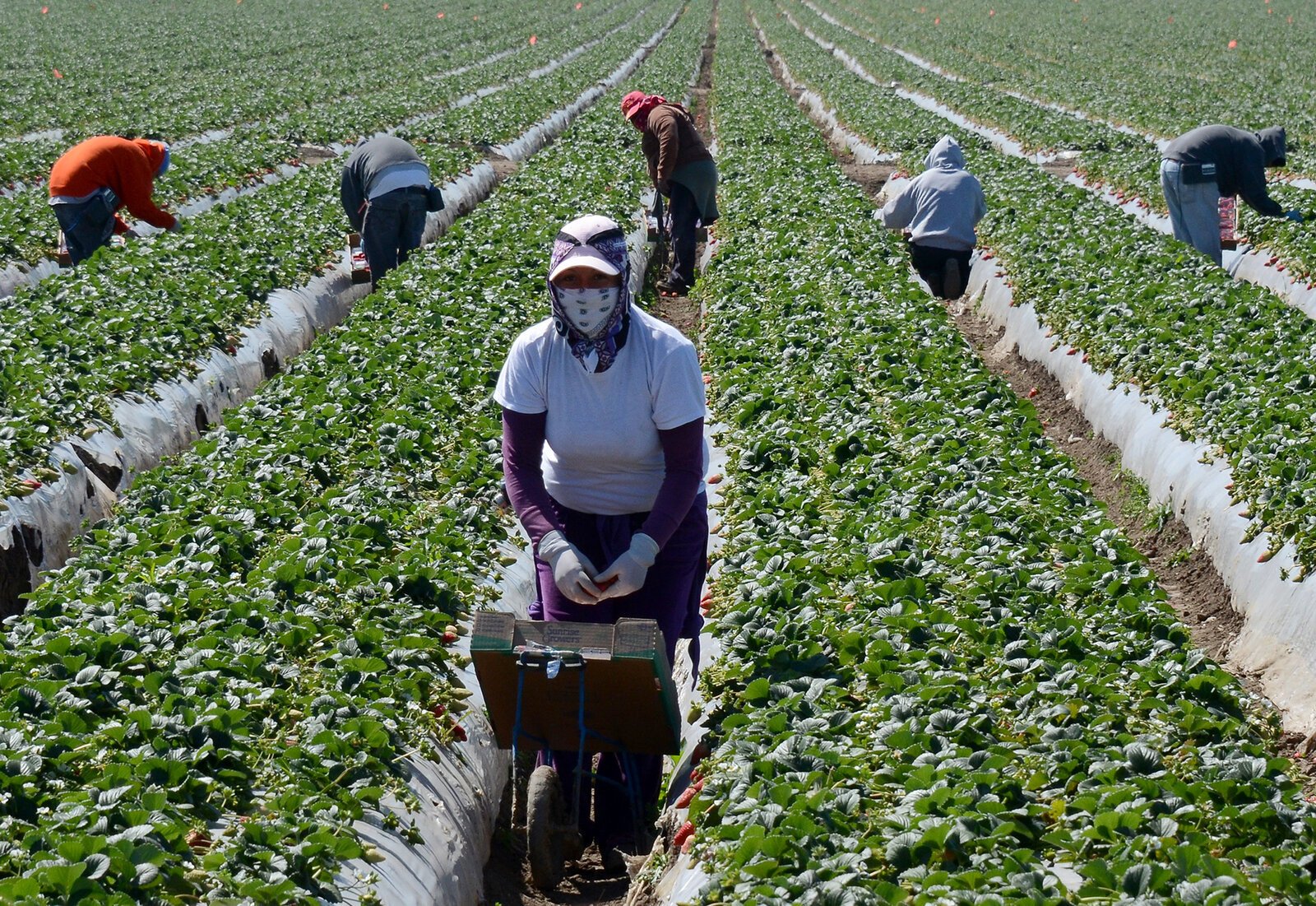Behind the Harvest: Unjust Farm Worker Rights
Inspired by our visit to The Ecology Center
Members and supporters of the United Farm Workers march through Fresno during day 10 of their 24-day march on Aug. 12, 2022. Photo by Larry Valenzuela, CalMatters/CatchLight Local
Farm workers provide an essential service, yet their jobs are some of the countries most dangerous and least sufficiently compensated. Over 70% of produce in our world today is produced by small-scale family farmers; in the U.S., it is a whopping 86%. This means that the abundance of food in the U.S. is thanks to the strenuous labor of our nation's 2 million farms. Family farms also provide high-quality foods as we are fortunate enough not to worry about what we consume due to USDA's Food Safety and Inspection services that are "present in over 6,500 establishments each day," according to Dr. Mindy Brashears, Under Secretary for Food Safety, U.S. Department of Agriculture. Although farm workers seem to have a connection with the rest of the population as we eat the food produced, most people are oblivious to the inequality in farmer rights throughout the world, leaving farmers as an almost forgotten section of society. Some examples of the inadequacy of rights for farmers are the lack of health insurance and the unequal impact on women in the field.
Each of the 5.5 days of work weeks, farmers populate the fields under the scorching sun without access to shade, leaving them susceptible to heat stress. Studies in 2018 from Emory University show that 43% of farm workers began the workday dehydrated, up to 72% showed signs of dehydration by the end of the workday, and more than 80% had dangerous body temperatures on at least one day of the three-day study. With the recent wildfires in California, these numbers have risen rapidly. This issue worsens as most farm workers lack basic labor protections such as health insurance. Pesticides are also a common health risk, as exposure leads to cancer, depression, diabetes, neurodegenerative diseases, and reproductive issues. With global warming, more pesticides are needed to reduce weeds and pests. The heat also increases the dangerous rate of chemical transformation into more toxic compounds. These chemicals can be brought into homes with clothes, shoes, and bodies, endangering families that live near the fields.
Furthermore, women play an essential role in the American food system, making up 28% of agricultural workplaces in the U.S. They are given the lowest paying jobs on average, 9.6 hours a day and 56 hours a week at $12.40 an hour. "Farmworker women are arguably the most exploited workers in this country," states the National Farmer Worker Ministry. While experiencing frequent sexual harassment and gender discrimination, they are also the primary caregivers of children. The Human Rights Watch report noted an alarmingly high death and injury rate for young workers. From 2005 to 2008, 43 children under age 18 died from occupational injuries in crop production—27% of all children were fatally injured at work. Children are even more vulnerable to heat stress and pesticide chemicals. These devastating numbers clearly show the injustice regarding our farmers, emphasizing the need for change.
Migrant workers harvest strawberries at a farm near Oxnard, Calif. Ventura County is one of two counties where labor organizers hope to get a Bill of Rights passed to protect farm workers from abuse and wage theft. Joe Klamar/AFP/Getty Images
Although this is a vast issue and can be challenging to resolve, The Ecology Center takes a step to combat these issues by creating a relationship between "growers” and "eaters," farmers and consumers, respectively. The Ecology Center has "higher food prices because it is grown by a person you have a relationship with. Those farmers are paid a living wage, so we must charge more because that is the actual price for food produced," comments Jonathan Zaidman, director of Engagement. Another main reason their prices are so high is due to the fact that the government invests in industrialized farming compared to family farming as it is faster and cheaper. However, industrialized farming has detrimental effects on the environment and produces “unhealthy” food. In the future, The Ecology Center hopes to drop the price of their produce if more money was invested in sustainable agriculture.
The unfortunate truth is that the people growing our food, those responsible for the quality of the produce we consume, that goes into the dinners we make, and the snacks that are fed to children, are treated unfairly. Exposed to conditions leading to poor health, low pay, and discrimination, family farmers at this time experience crucial conditions. Having a relationship with farmers can help us understand farm workers' rights and address the constant adversity they face.

